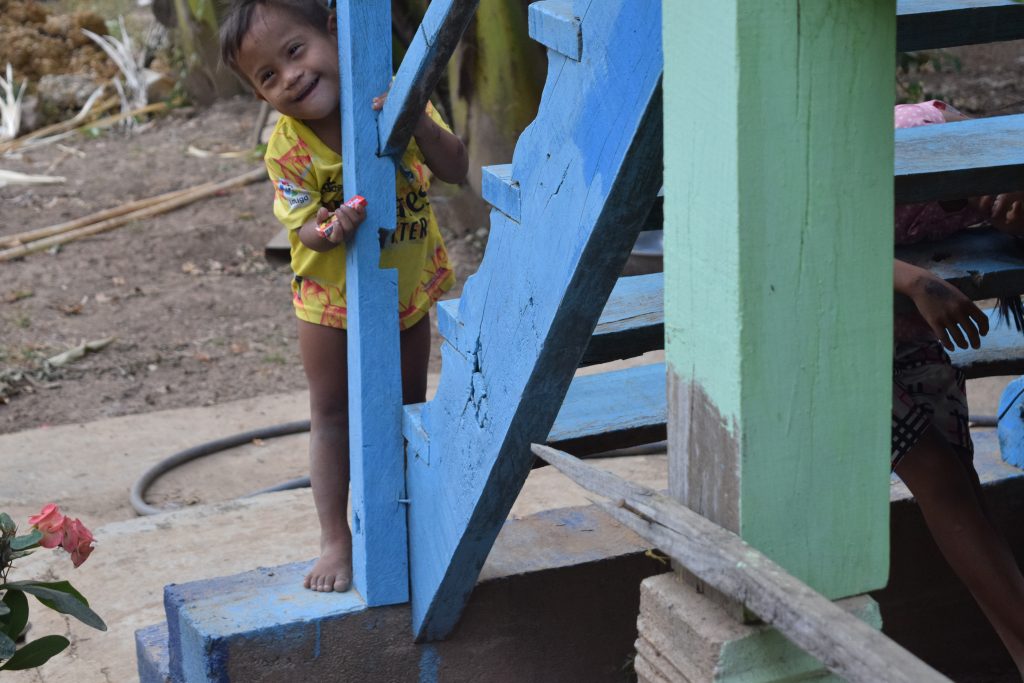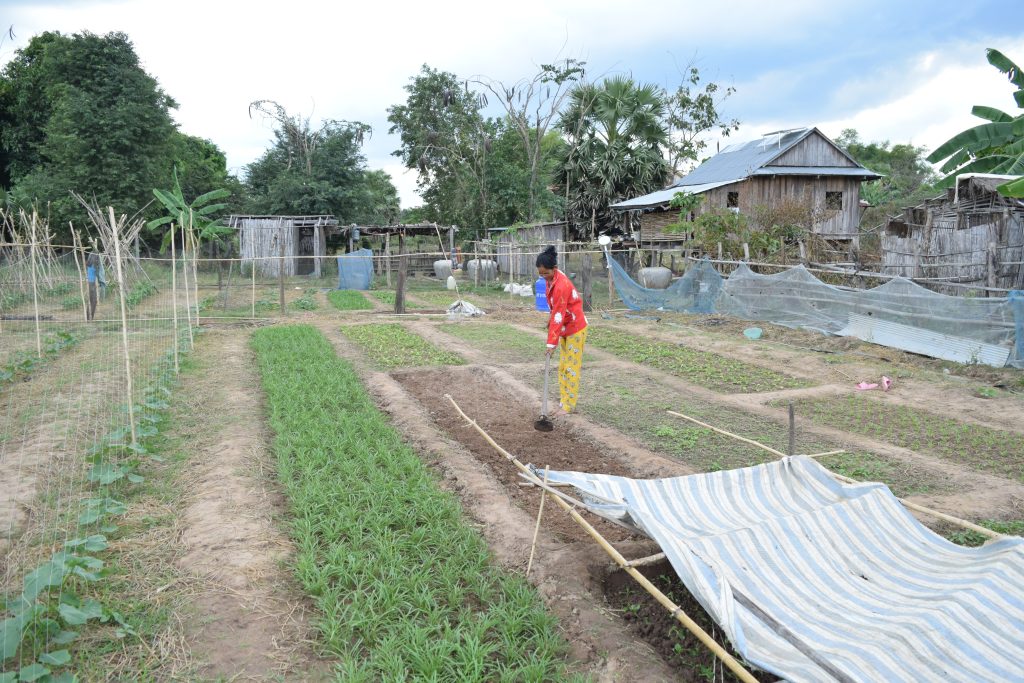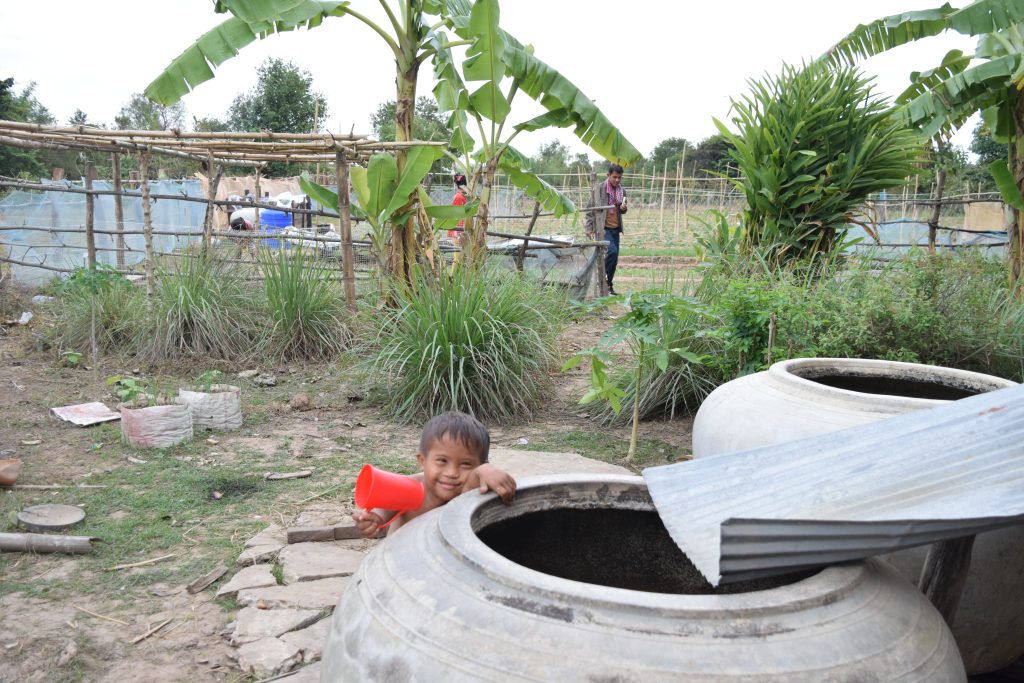During my visit to Kratie in January 2023, I attended a village savings group meeting and meet a boy named January. Actually, he’s named មករា, Meakaraa, which is the Khmer word for January.

Several community members told me that មករា was “not normal” and blamed his mother, Sophea, because she did not “did not take him to the hospital soon enough.” To me, មករា had obvious signs of Down Syndrome and reminded me of many of my friends from Pennsylvania. Sophea’s husband works at a cassava plantation in another province and she’s responsible for their three children, the household work, and the farming work. Like all of the project participants, Sophea’s family is classified as living below the national and provincial poverty line. She’s growing an impressive vegetable garden using a start-up loan from the village savings group and following the climate change resilient techniques she learned from MCC partner Cambodian Rural Development Team.

In the book of John, Jesus’ disciples ask, “Rabbi, who sinned, this man or his parents, that he was born blind?” Jesus answers neither – the disability was not the result of immorality. In Cambodia, people with disabilities are often believed to have been immoral due to how Buddhist beliefs about krama are interpreted locally. Disability, and misfortune in general, are believed to have been caused by accumulating negative krama in a past life. Additionally, Mothers are traditionally seen as being responsible for birth defects – because women are believed to have closer connection to the spirit world making them more susceptible to evil spirits – and disability can be grounds for divorce or abandonment. As healthcare has improved, more Cambodians are turning away from soothsayers and towards medical professionals, but mothers are still seen as responsible both for children having a disability and for being their caregiver.

We will make it a point to revisit មករា over the coming months and years, to check in on him and understand his daily life. We had a false start on disability programming with the Prey Veng Female Disabled Federation (without going into the details, it didn’t work out), but are hopeful that a few other leads will develop into partnerships that will help us train our staff, partners, and program participants on inclusion. In a collectivist culture, it’s very important that family members contribute to the family; so helping មករា find a livelihood as he grows up is one way that will help the villagers see មករា for himself and not for his disability. I’m writing an article for Mennonite Central Committee’s Intersections publication on disability inclusion and will share it here when it’s published.
January is so cute! Thank you for sharing this. Prayers up 🙏
I appreciate you sharing this, and your other blog posts concerning real life in Cambodia. I feel at a complete loss with the true stories you share…so, I pray. Thank you for helping the people of Cambodia.
Thanks Grandmom!
Wow, it’s sad how people with disabilities are valued so little across cultures 😢 but January is cute!
It is heartbreaking. 🙁
That’s a tricky title! Thought maybe this was an early announcement about your little fella!
Hi Sherry! That would be a boy named February or March! We’re two weeks out from the due date so, Lord Willing, we’ll have some posts about him soon!
❤🙏